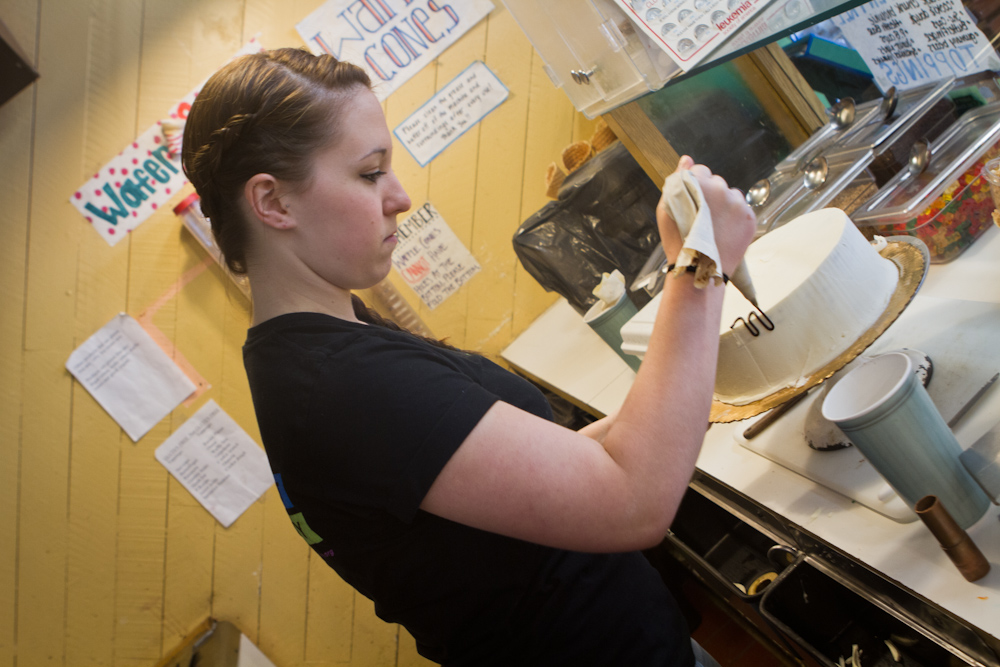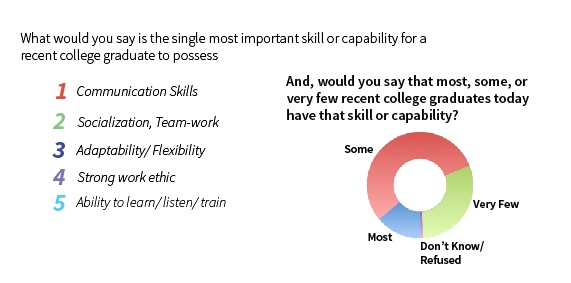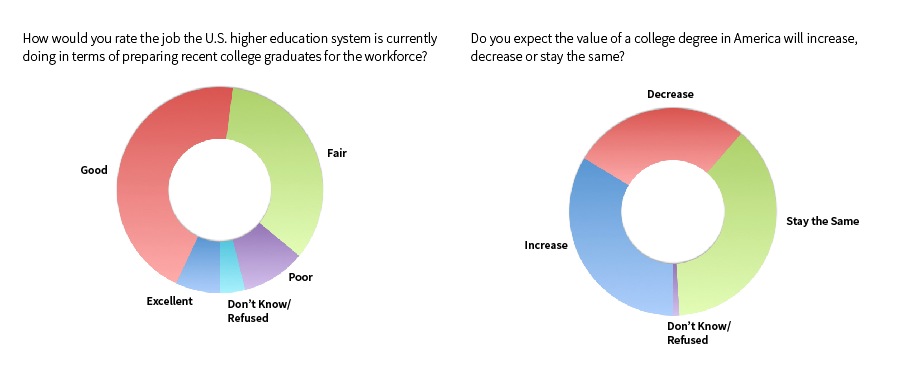
Chelsea Lennox, a senior at Boston College, works at an ice cream shop. The psychology major has yet to find a full-time job in her field. (Mallory Noe-Payne/WGBH)
The debate in this country about the value of a college degree often centers around job preparation.
A new poll out Tuesday from Northeastern University finds business leaders think few recent graduates have the skills to be good workers.
The poll paints a rather bleak picture: Out of 800 business leaders polled nationally, 73 percent said there's a shortage of necessary skills in the American workforce.
For Brian Palmer, CEO with General Electric, that shortage means not being able to find people who have the ability to use new technologies and traditional engineering skills.
"It's not a discipline we see today is this combination of very savvy, software capable engineers that have the fundamentals of electrical, mechanical and civil," Palmer said. "The challenges are bigger and the pools are smaller."
The skills gap is in more than just technology and science. The Northeastern poll shows the top skills employers are looking for are actually qualities like adaptability. Nearly 90 percent say teaching students about entrepreneurship, including how to start your own business, is important. Palmer says when GE recruiters visit schools they're also looking for that human element.
"The ability to communicate with others, the ability to influence others because operating in a team there's not always a hierarchy," Palmer said. "How do you get things done by influencing folks that may not work for you and may not report to you?"

Data from Northeastern University (Mallory Noe-Payne/WGBH)
When asked how colleges can better prepare students for the workforce, Palmer talks about the importance of communication.
"I think colleges ought to be spending more time talking to industry leaders about what the current trends in capabilities are, what the current trends in needs are, and stay very close to the real world," said Palmer.
But some educators say college is not just about job training. Carol Schneider is president of the Association of American Colleges and Universities. She's not convinced that higher education is at fault.
"Educators have spent a lot of time asking themselves what kind of knowledge and skill and experience do students really need to thrive and prosper in the complexities of the twenty-first century world," Schneider said. "Employers have been spending a lot of time telling educators what they'd like to see more of. And when you actually look at the list of competencies, they're both talking about, they're pretty much the same."
For Schneider, it's simple: educators want students to write and think critically, employers want employees to write and think critically. And, Schneider argues, liberal arts schools should focus on helping students learn how to problem-solve.
"That's what a liberal education does and that's what the economy needs now for graduates to be able to do," said Schneider.

Data from Northeastern University (Mallory Noe-Payne/WGBH)
Senior Chelsea Lennox works at White Mountain Creamery across the street from the Boston College campus. The psychology major is graduating in a few weeks and she feels her college education has prepared her for the real world.
"It's certainly whipped me into shape. I've never worked as hard as I have at BC, so I'm pretty prepared," laughed Lennox as other students filed in to celebrate the end of finals.
So far, though, Lennox hasn't had any luck in finding a full-time job in her field.
"My job search has been really difficult," Lennox said. "I've applied to a lot of clinical research positions and I've been denied from every one of them."
Next year, Lennox plans to be an au pair abroad. Her friends, though, are still waiting to hear back about jobs. While the Northeastern poll shows almost a quarter of employers think a skills gap is to blame for that difficult job search, rather than a lack of jobs, she disagrees.
"I've seen some really talented individuals that are super well rounded, really good at communicating needs and ideas and problem solving," said Lennox.
Most business leaders that were polled say higher education needs to innovate if the U.S. is to remain globally competitive. And a majority say the U.S. education system lags behind developed and emerging markets in preparing students for the workforce.
Tuesday at 9 a.m. WGBH's Kara Miller will moderate a panel about what employers are looking for in a globally competitive talent pipeline. You can live stream the program here.










